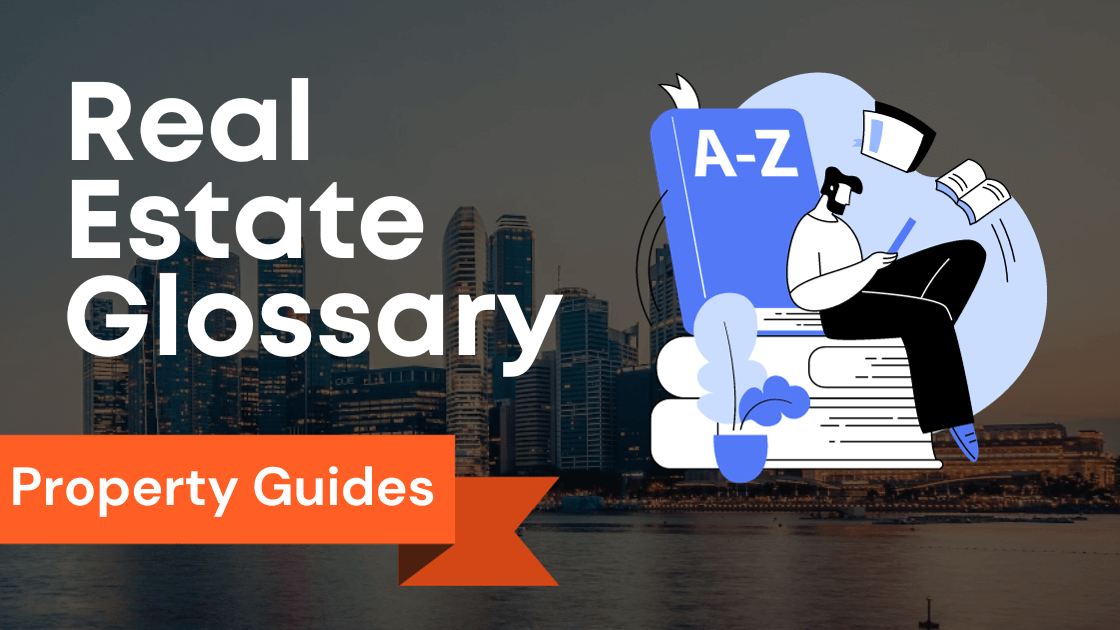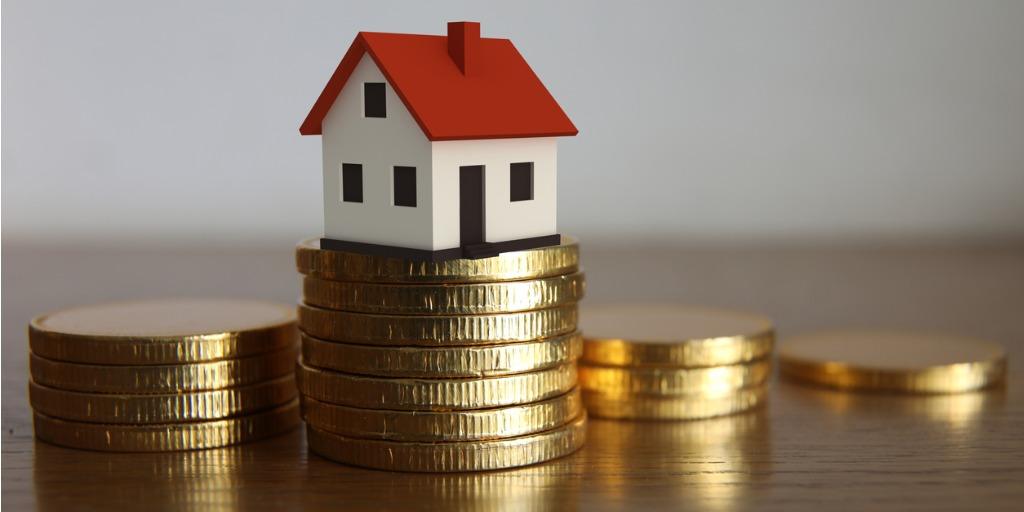
Discover the world of HDB bonds – an investment option backed by the Singapore government, offering stable returns and low risk.
Explore their importance, the different types available, and how they compare to other investment products.
Learn about the role of the Housing and Development Board and how it issues bonds, as well as the impact of credit ratings and interest rates on HDB bond yields.
Key Takeaways
| Key Takeaway | Information |
|---|---|
| HDB bonds are debt instruments | HDB bonds are debt instruments issued by the HDB to investors looking for stable returns through fixed interest payments. |
| Importance of HDB bonds | Investing in HDB bonds can be a safe and secure way to earn a stable income. |
| Types of HDB bonds | Several types of HDB bonds are available, including 5-year and 7-year bonds with fixed coupon rates. |
| Role of the Housing and Development Board | The HDB is a statutory board responsible for providing affordable housing solutions to Singapore residents. |
| HDB bond issuance process | The HDB issues bonds by submitting the necessary documentation and information, working with joint lead managers, and selling the bonds to investors. |
| Relationship between HDB and government | The HDB is a government statutory board in Singapore and receives funding and support from the government. |
| Government statutory boards in Singapore | Government statutory boards are semi-autonomous organizations that carry out specific government programs and initiatives. |
| Credit ratings for HDB bonds | Credit ratings assess the creditworthiness of HDB bonds and provide information on the risks associated with investing in them. |
| Performance of the housing market and its impact on HDB bonds | The performance of the housing market can affect the revenue generated by HDB and, consequently, the performance of HDB bonds. |
| Comparing HDB bonds with other investment products | HDB bonds offer relatively attractive yields and are considered low-risk, making them a popular choice for fixed-income investors. |
| Role of fixed coupon rates | Fixed coupon rates determine the interest payments investors receive from HDB bonds and reflect the creditworthiness of the issuer. |
| Historical performance of HDB bonds | HDB bonds have a stable history and have provided investors with a reliable source of income. |
| Credit rating of HDB bonds | HDB bonds have a credit rating of AAA, indicating a very low risk of default. |
| Impact of interest rates on HDB bond yields | HDB bond yields are affected by changes in interest rates. Higher interest rates generally lead to higher bond yields. |
| HDB bonds as a financing tool for housing development | HDB bonds have been used by the HDB to finance the construction of public housing. |
| Impact of HDB Bonds on affordable housing | HDB bonds play a role in funding and supporting the provision of affordable housing. |
Understanding HDB Bonds and Their Importance

What are HDB bonds and how do they work?
HDB bonds are debt instruments issued by the HDB to investors looking for stable returns through fixed interest payments.
The issuer, which is the HDB in this case, borrows a fixed sum of money at a fixed interest rate from the bondholders.
This debt is paid back to the investors with interest over a set term.
Why are HDB bonds important for investors?
Investing in HDB bonds can be a safe and secure way to earn a stable, predictable income.
HDB bonds are backed by the Singapore government, which means that they are considered to be a relatively low-risk investment option for investors looking for an assured rate of return.
What are the different types of HDB bonds available?
There are several types of HDB bonds available, including 5-year and 7-year bonds with fixed coupon rates.
The rates are offered at relatively attractive yields, making them an excellent investment for investors seeking fixed-income products.
Additionally, the HDB recently issued 10-year bonds as a new financial instrument.
These bonds can be purchased directly or indirectly through a company, fund, or other asset.
Exploring the Role of the Housing and Development Board (HDB)
What is the Housing and Development Board, and
what is its role?
The HDB is a statutory board responsible for providing affordable housing solutions to Singapore residents.
Its mission is to create a sustainable and vibrant living environment for the resident population while delivering quality housing and related services.
The HDB actively participates in developing and managing housing projects that cater to various segments of Singapore’s population.
How does the HDB issue bonds, and what is the
process involved?
The HDB issues bonds by first submitting the necessary documentation and information to the relevant authorities.
The bond issuance process is carried out in close collaboration with joint lead managers such as Phillip Securities Pte Ltd.
These managers help to ensure that the offering is structured properly and marketed effectively to potential investors.
Once the bonds are issued, investors can purchase them through their financial adviser or broker.
What is the relationship between the HDB and the
government?
The HDB is a government statutory board in Singapore.
As such, the HDB is subject to government regulations and oversight.
The government provides the HDB with funding to carry out its housing programs and supports the board in achieving its stated objectives.
An Overview of Government Statutory Boards in Singapore

What are government statutory boards, and what is their
purpose?
Government statutory boards are semi-autonomous organizations that report directly to the Singapore government.
These boards are established to carry out specific government programs and initiatives and are given a degree of operational independence to achieve their mandate effectively.
The purpose of these boards is to act as a bridge between the government and the public by delivering essential services and implementing policy directives.
How do HDB bonds relate to other government statutory
board bonds?
HDB bonds are one of several types of government statutory board bonds available in Singapore.
Government statutory board bonds are issued to raise funds to finance various initiatives and projects that the government carries out through these boards.
HDB bonds, particularly, provide funding for housing projects and related services.
What are the benefits of investing in government statutory
board bonds?
Investing in government statutory board bonds can be an excellent way to diversify a portfolio, earn stable returns, and support government initiatives.
These bonds are generally considered to be low-risk investments as they are backed by the Singapore government and typically offer relatively attractive yields.
The Significance of Credit Ratings for HDB Bonds
What is a credit rating, and why is it important for HDB
bonds?
A credit rating is an evaluation of the creditworthiness of an issuer or debt instrument, such as HDB bonds.
Credit ratings provide valuable information on the borrower’s ability to make timely interest and principal payments.
Credit ratings are important for HDB bonds as they help investors make informed decisions regarding the risks associated with investing in these instruments.
How are credit ratings for HDB bonds determined?
Credit ratings for HDB bonds are typically determined by reputable rating agencies such as Fitch Ratings.
These agencies analyze various factors, such as the issuer’s financial situation, economic indicators, and other relevant information to arrive at a rating.
The ratings range from AAA, which is the highest rating, to D, which is the lowest rating.
AAA-rated HDB bonds are considered to be the safest investment option.
What is the impact of credit ratings on HDB bond yields?
Credit ratings have a direct impact on HDB bond yields.
Generally, the higher the credit rating of an HDB bond, the lower the yield on the investment.
This is because higher-rated bonds are considered to be a safer investment option and, therefore, do not need to offer as high a yield as lower-rated bonds to attract investors.
Examining the HDB Bond Issuance Process

What is the process for HDB bond issuance?
The process for HDB bond issuance detailed in the Offering Circular involves several key steps.
First, the HDB prepares the necessary documentation and information, which is then submitted to the relevant authorities.
Once the necessary approvals are obtained, the HDB engages joint lead managers to help market and sell the bonds to potential investors.
The bonds are then issued, and investors can purchase them through a broker or financial adviser.
What are the requirements for investing in HDB bonds?
To invest in HDB bonds, investors must meet certain requirements.
These may include residency requirements, minimum investment amounts, and other criteria determined by the government and the HDB.
Additionally, investors must have the necessary cash available to purchase the bonds and be willing to assume the risks associated with investing in fixed-income products.
What are the risks associated with investing in HDB bonds?
As with all investments, there are risks associated with investing in HDB bonds, including the possibility of default if the HDB is unable to make timely interest and principal payments.
Additionally, there is the risk of rising interest rates affecting the value of the bonds and market price fluctuations that can impact the value of the investment.
Investors should carefully consider these risks before making any investment decisions.
Analyzing the Housing Market and Its Impact on HDB Bonds
How does the performance of the housing market affect
HDB bonds?
The performance of the housing market can have a significant impact on the performance of HDB bonds.
This is because the HDB relies on the housing market to generate revenue to fund its operations and repay its debt obligations.
During periods of economic growth and increasing demand for housing, HDB bonds are likely to perform well.
In contrast, during economic downturns or periods of low demand for housing, the performance of HDB bonds may suffer.
What are the current trends in the housing market, and
how do they relate to HDB bonds?
Currently, the Singapore housing market is experiencing steady growth, with prices on the rise.
This is likely to be positive for HDB bonds as it suggests that there is strong demand for housing, which should generate revenue for the HDB to repay its bond obligations.
However, investors should be aware that past performance is not indicative of future performance, and the housing market can be subject to sudden shifts due to various economic and social factors.
What are the risks associated with investing in HDB bonds
during different stages of the housing market cycle?
Investing in HDB bonds during different stages of the housing market cycle can expose investors to different risks.
For example, investing in HDB bonds during a period of economic expansion and rising demand for housing may increase the likelihood of the bonds performing well.
However, investing during a time of economic contraction or low demand for housing may increase the risk of default and negatively impact the value of the investment.
Comparing HDB Bonds to Other Investment Products

How do HDB bonds compare to other fixed-income
investment products?
HDB bonds can be compared to other fixed-income investment products such as Singapore Savings Bonds or green bonds.
Each of these products offers its own advantages and disadvantages and may be appropriate for different investment objectives.
HDB bonds tend to offer relatively attractive yields and are considered relatively low-risk, making them a popular choice for investors seeking fixed-income products.
What are the advantages and disadvantages of investing
in HDB bonds?
The advantages of investing in HDB bonds include the potential for stable, predictable returns and relatively low risk due to the backing of the Singapore government.
Utilizing Exterior Design Ideas for Your Executive Flat
Maximize your executive flat’s potential by incorporating exterior design ideas.
Exterior design ideas can transform an HDB executive flat into a stylish, functional living space.
For instance, repainting your flat’s exterior, strategically placing potted plants, and adding a balcony can add life and style to your executive flat.
The Role of Fixed Coupon Rates in HDB Bonds
What are fixed coupon rates?
A fixed coupon rate is the interest rate that is paid out on a bond periodically.
The coupon rate is fixed when the bond is issued, and it remains the same throughout the bond’s life.
This means that the interest payment that you receive from the bond will remain constant, regardless of changes in the market interest rates.
Why are fixed coupon rates important in HDB bonds?
Fixed coupon rates are important in HDB bonds as they provide investors with a steady stream of income, making it an attractive investment option for those seeking regular income.
Additionally, fixed coupon rates are a measure of the creditworthiness of the issuer.
The higher the coupon rate, the riskier the bond is perceived to be.
Conversely, the lower the coupon rate, the more creditworthy the issuer is perceived to be.
How do fixed coupon rates affect my investment in HDB
bonds?
Fixed coupon rates affect your investment in HDB bonds by determining the amount of interest that you will receive from the bond.
This interest payment is fixed at the time the bond is issued, and it remains the same over the life of the bond.
Therefore, if you invest in an HDB bond with a high fixed coupon rate, you will receive a higher interest payment than if you had invested in a bond with a lower fixed coupon rate.
However, keep in mind that higher fixed coupon rates come with higher risks.
Exploring the Historical Performance of HDB Bonds

How has the performance of HDB bonds been in the past?
HDB bonds have a long and stable history and have been a popular investment option in Singapore for decades.
Historically, HDB bonds have provided investors with a steady income stream, making them an attractive investment option for those seeking a reliable and stable investment.
What factors affect the performance of HDB bonds?
The performance of HDB bonds is affected by various factors, including interest rates, inflation, and the economy’s overall health.
Higher interest rates are generally associated with a higher risk of default, so if interest rates rise, the value of HDB bonds may fall.
Additionally, inflation erodes the value of fixed-income investments like bonds, so higher inflation rates can also impact the performance of HDB bonds.
How can I evaluate whether investing in HDB bonds is right
for me?
The decision to invest in HDB bonds should be based on your investment horizon, investment potential, and financial goals.
If you are looking for a stable and reliable investment option that provides regular income, HDB bonds may be a good option for you.
However, other investment options may be more suitable for you if you are looking for higher returns and do not require regular income.
Understanding the Difference Between HDB Bonds and Other Financial Instruments
What are HDB bonds?
HDB bonds are unsecured corporate bonds issued by the HDB.
These bonds are listed on the Singapore Exchange (SGX) and are available to individual and institutional investors.
HDB bonds are considered to be a safe and low-risk investment option, as the Singapore government backs them.
What distinguishes HDB bonds from other financial
instruments?
HDB bonds differ from other financial instruments in terms of risk and return.
HDB bonds are considered to be a low-risk investment option, as the Singapore government backs them.
This means that investors are unlikely to lose their investment even in the event of a default.
However, the returns on HDB bonds are relatively low compared to other investment options.
How do HDB bonds compare with other investment
options?
HDB bonds compare favorably with low-risk investment options such as government bonds and fixed deposits.
However, if you are looking for higher returns, you may want to consider other investment options, such as equities or mutual funds.
Keep in mind that these investments come with higher risks.
Assessing the Credit Rating of HDB Bonds and Its Implications

What is the credit rating of HDB bonds?
The credit rating of HDB bonds is AAA, which is the highest rating possible.
This indicates that HDB bonds are considered a very safe and low-risk investment option.
How is the credit rating of HDB bonds determined?
The credit rating of HDB bonds is determined by rating agencies such as Moody’s and Standard & Poor’s.
These agencies evaluate the financial strength and creditworthiness of the issuer and assign a rating based on their assessment.
What are the implications of the credit rating for investors
in HDB bonds?
The credit rating of HDB bonds has implications for investors in terms of the safety and stability of the investment.
A higher credit rating indicates that the issuer is more creditworthy and less likely to default on the bond.
Additionally, a higher credit rating may also result in lower borrowing costs for the issuer, which can ultimately benefit investors.
Examining the Impact of Interest Rates on HDB Bond Yields
Understanding HDB Bonds
First, let us understand what HDB bonds are.
HDB bonds are unsecured bonds issued by the Singapore government’s Housing and Development Board to raise funds for public housing development.
The bonds come in various denominations, with the common ones being five-year green senior unsecured bonds, 7-year bonds, and 50-year bonds.
HDB bond prices are determined by supply and demand forces in the market, and they are typically issued with a strong rating from credit rating agencies such as Fitch AAA and S&P/Fitch.
Factors Affecting HDB Bond Yields
HDB bond yields are impacted by various factors.
One of the key factors is interest rates.
When interest rates increase, bond yields tend to go up as well.
This is because investors demand a higher return on their investment to compensate for the increased risk of holding a bond with a lower coupon rate.
Conversely, bond yields tend to go down when interest rates decrease, as lower interest rates make the bond more attractive.
Analyzing the Impact of Interest Rates on HDB Bond Yields
Since HDB bonds are typically issued with a fixed coupon rate, investors who hold the bond until maturity can expect to receive a fixed payout.
However, if interest rates rise above the bond’s coupon rate, the bond’s value in the secondary market will decline, leading to capital losses for investors who sell the bonds before maturity.
Therefore, investors in HDB bonds need to keep a close eye on interest rate movements to ensure that their investment remains profitable.
Case Study: HDB Bond Issuance and Its Impact on Housing Development

HDB Bonds as a Financing Tool
One of the ways that the HDB has financed the construction of public housing is through bond issuance.
In 2020, the HDB issued SGD 400 million of five-year green senior bonds to fund sustainable development projects.
The HDB bonds are popular among investors, as they offer a relatively high yield compared to other government loans.
Case Study: HDB Bonds and Their Impact on Affordable
Housing
One of the main goals of the HDB is to provide affordable public housing to Singaporeans.
The HDB bonds play a crucial role in financing housing development, providing the HDB with fresh funds to develop affordable housing projects.
In recent years, the HDB has ramped up its efforts to increase the supply of affordable housing units in response to rising demand, and bond issuance has been a key tool in achieving this goal.
Success Stories: HDB’s Past Bond Issuances
Over the years, the HDB has issued many successful bond programs to finance public housing development.
In 2019, the HDB issued SGD 2.
6 billion of five-year bonds, which were oversubscribed by retail investors.
The HDB also issued its first long-term SGD 600 million 50-year bond in 2017, which investors well received due to its attractive yield and strong rating.
Evaluating the Role of HDB Bonds in Financing Affordable Housing
Understanding HDB’s Affordable Housing Policies
The HDB plays a critical role in providing affordable public housing to Singaporeans.
The HDB’s policies aim to ensure that every Singaporean has access to a fair market-priced home.
These policies include annual government grants, affordable housing loans, and other measures to support homeownership.
Role of HDB Bonds in Financing Affordable Housing
The HDB bonds are a key tool in financing affordable housing in Singapore.
The bonds allow the HDB to raise funds at a lower cost than other financing options, such as bank loans.
This, in turn, helps the HDB to keep the cost of public housing affordable.
Over the years, the HDB has raised billions of dollars through bond issuances, making it a crucial financing tool for affordable housing development in Singapore.
Impact of HDB Bonds on Singapore’s Housing Market
The HDB bonds have had a significant impact on the Singapore housing market.
The bonds help to ensure the adequate supply of affordable housing units in the market, which in turn helps to stabilize the price of public housing.
The HDB bonds also allow retail investors to invest in Singapore’s housing market and earn a steady return on their investment.
Exploring Investment Strategies for HDB Bond Investors

Types of HDB Bonds
The HDB issues several types of bonds, including five-year green senior unsecured bonds, 7-year bonds, 50-year bonds, and more.
Each bond type has its own unique characteristics, such as different yields and redemption periods.
Investors should carefully evaluate the features of each bond type to determine which ones align with their investment goals and risk tolerance.
Risk vs. Return for HDB Bond Investors
Like all investments, investing in HDB bonds involves some degree of risk.
While HDB bonds are considered relatively safe, they are not entirely risk-free.
Investors should carefully evaluate the credit rating of the bond issuer, as well as the payment scenarios and other risks, before investing in HDB bonds.
It is also important to consider the potential returns of HDB bonds compared to other investment options, such as bank savings accounts or mutual funds.
Investment Strategies for Retail HDB Bond Investors
For retail investors, investing in HDB bonds can be a good way to earn a steady return on their investment while supporting affordable housing development in Singapore.
To maximize their returns, investors can consider investing in HDB bonds with longer maturity dates, which tend to offer higher yields.
Investors should also consider diversifying their portfolio by investing in a mix of HDB bonds and other fixed-income securities.
Conclusion
In conclusion, understanding HDB bonds and their importance is crucial for investors seeking stable and secure investment options.
HDB bonds offer a safe way to earn predictable income, backed by the Singapore government.
There are different types of HDB bonds available, including 5-year, 7-year, and 10-year bonds, each offering attractive yields.
The HDB, as a statutory board, plays a vital role in providing affordable housing solutions in Singapore.
The bond issuance process involves collaboration with joint lead managers, ensuring proper structuring and effective marketing.
HDB bonds are just one type of government statutory board bonds, which are low-risk investments supporting government initiatives.
Credit ratings play a significant role in determining the risk and yield of HDB bonds, with higher ratings indicating safer investments.
Evaluating the housing market’s performance is essential as it affects the revenue generated for HDB bond repayments.
It’s important to compare HDB bonds with other investment products and consider fixed coupon rates, historical performance, and credit ratings when making investment decisions.
Finally, interest rates have an impact on HDB bond yields, and investors need to monitor interest rate movements to ensure profitability.
To explore more topics related to HDB bonds and other relevant subjects, we encourage you to check out our other blog articles for further insights.
Frequently Asked Questions
What is an HDB bond?
An HDB bond is a type of bond issued by the Housing and Development Board (HDB) in Singapore to raise funds for the construction of public housing.
It is a fixed-income security that pays interest to investors over a specified period of time.
Are HDB bonds government-backed?
Yes, HDB bonds are government-backed because the HDB is a statutory board under the Ministry of National Development in Singapore.
Who can invest in HDB bonds?
HDB bonds are available to both individual investors and institutional investors who are interested in investing in a fixed-income security issued by the Singapore government.
What is the credit rating of HDB bonds?
HDB bonds are rated AAA by Fitch Ratings, which is the highest credit rating possible and indicates a very low risk of default.
How much yield can investors expect from HDB bonds?
The yield on HDB bonds varies depending on factors such as the market price and the maturity date.
However, HDB bonds typically offer a competitive yield relative to other fixed-income investments.
What are green bonds and does HDB issue them?
Green bonds are fixed-income securities that are issued to fund environmentally friendly projects.
HDB has issued green bonds in the past to raise funds for the construction of energy-efficient public housing.
How are HDB bonds different from Singapore Savings Bonds?
HDB bonds and Singapore Savings Bonds are both investment products issued by the Singapore government, but they differ in terms of their investment objectives and features.
HDB bonds are primarily used to fund the construction of public housing, while Singapore Savings Bonds are designed to offer a low-risk investment option for individuals who want to save for the long term.
Can HDB bonds be redeemed before maturity?
Yes, HDB bonds can be redeemed before maturity, but investors may experience a loss in market value due to changes in the interest rates.
It is important to consult with a financial adviser and understand the risks before redeeming an HDB bond before its maturity date.
Does HDB issue unsecured bonds?
No, HDB only issues secured bonds that are backed by the Singapore government.
How can an investor buy HDB bonds?
HDB bonds are typically sold through joint lead managers who are appointed by the HDB to manage the issuance of the bonds.
Institutional investors can contact the joint lead managers directly to purchase HDB bonds, while individual investors can purchase them through their financial adviser or brokerage account.
Can investing in HDB bonds help to address Singapore's housing deficit?
Yes, investing in HDB bonds can help to address Singapore’s housing deficit by providing a stable source of funds for the construction and maintenance of quality housing for the resident population.
Can I see HDB flats on Instagram?
Yes, many HDB homeowners share their interior design ideas and renovation projects on Instagram.
You can browse through the #hdb and #hdbrenovation hashtags to see their posts.
What is an HDB bond?
An HDB bond is a type of bond issued by the Housing and Development Board (HDB) in Singapore to raise funds for the construction of public housing.
It is a fixed-income security that pays interest to investors over a specified period of time.
What is the "5" feature in HDB flats?
The “5” feature refers to the layout of HDB flats, which features a living room, dining room, kitchen, and two bedrooms.
This is often referred to as a 5-room flat.
What is a BTO flat?
BTO stands for “Built-To-Order”.
These are new flats developed by HDB specifically for sale to eligible buyers.
Buyers need to apply for BTO flats during specific launch periods and the flats are only put up for sale after construction is completed.
What is the Development Board?
The Development Board, or HDB, is a government agency in Singapore responsible for developing public housing estates and providing affordable housing options to Singaporeans.
What is the Nice Home Gallery?
The Nice Home Gallery is a showroom operated by HDB that showcases various design concepts for HDB flats.
It offers visitors ideas and inspiration about how to decorate and renovate their living spaces.
How frequently are the showflats refreshed with new interior designs?
The frequency of showflat refreshes may vary depending on the project and location of the HDB flats.
However, generally, showflats are refreshed with new designs every few years to keep up with changing design trends and to provide visitors with fresh ideas.
What types of interior design concepts are showcased in the HDB showflats?
The design concepts showcased in the HDB showflats vary widely depending on the flat type and theme.
They can range from minimalist and modern to traditional and cozy.
What are the eligibility criteria for purchasing an HDB flat?
To be eligible to purchase an HDB flat, you should be a Singapore citizen or a Permanent Resident who met the minimum occupancy period.
Additionally, you must have reached the minimum age of 21 years old, and your household income should not exceed the maximum income ceiling.
How is the supply of HDB flats determined?
The supply of HDB flats is determined by various factors such as population growth, income levels of the population, and the government’s housing policies.
HDB constantly monitors these factors to ensure an adequate supply of housing options for all Singaporeans.
What days are the HDB showrooms open?
The opening hours and days of the HDB showrooms may vary depending on their location.
However, most showrooms are open from Monday to Sunday, including public holidays.




















